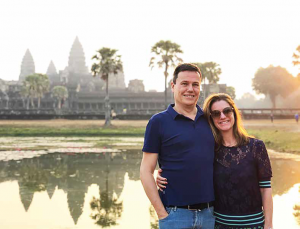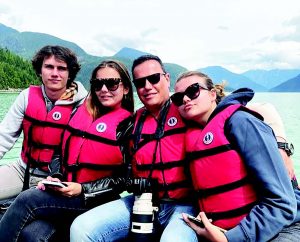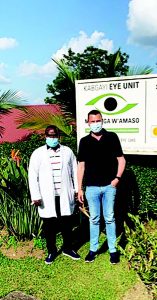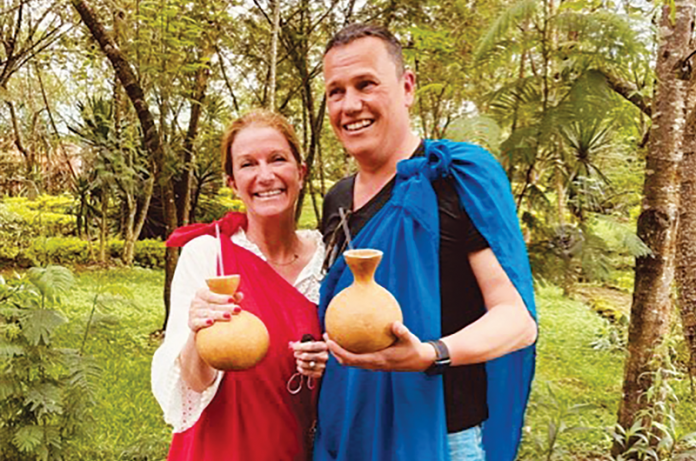Dr. Erik Mertens is a very talented and successful ophthalmologist. He told us that since the age of 12, he was obsessed with ophthalmology due to a visit to the family ophthalmologist.
 Dr. Erik Mertens currently works at the Department of Ophthalmology, Medipolis Medical Research Institute. Dr. Mertens conducts research in ophthalmology. Treatment of eye disorders and anterior eye surgery are the specialties of this ophthalmological clinic in Antwerp, Belgium. Services rendered at the clinic include treatments for the correction of near-sightedness, far-sightedness, astigmatism, presbyopia, seeing without glasses, contact lens fitting, eye corrections, treatments for wrinkles around the eye, cataract treatments, glaucoma treatments, cornea transplants, and eye treatments for children. Dr. Martens is an expert eye surgeon and performs eye treatments for patient
Dr. Erik Mertens currently works at the Department of Ophthalmology, Medipolis Medical Research Institute. Dr. Mertens conducts research in ophthalmology. Treatment of eye disorders and anterior eye surgery are the specialties of this ophthalmological clinic in Antwerp, Belgium. Services rendered at the clinic include treatments for the correction of near-sightedness, far-sightedness, astigmatism, presbyopia, seeing without glasses, contact lens fitting, eye corrections, treatments for wrinkles around the eye, cataract treatments, glaucoma treatments, cornea transplants, and eye treatments for children. Dr. Martens is an expert eye surgeon and performs eye treatments for patient

s at the clinic.
Tell us a little bit about yourself… Where were you born?
I was born in Antwerp, Belgium, on February 10th, 1965.
How was your childhood?
I had a very pleasant youth with no sorrows.
How did you get married?
I married at the age of 30 after I finished my ophthalmology training.
Do you have any children?
I have three kids: a daughter, Charlotte, 23 years old (Master in Criminology), a son, 20 years old and currently studying medicine at the University of Antwerp, and the youngest  daughter, 18 years old, who is in her last year of high school. We have a very tight relationship, and we all love to travel (except the last year for unfortunate reasons).
daughter, 18 years old, who is in her last year of high school. We have a very tight relationship, and we all love to travel (except the last year for unfortunate reasons).
Why ophthalmology? What drew you to ophthalmology?
Since the age of 12, I was obsessed with ophthalmology due to a visit to the family ophthalmologist. I was really impressed by all the different technical examinations.
How has your career progressed?
I was very fortunate to do corneal refractive surgery since my first year as a resident. From then on, I did not stop to implement the newest techniques in practice.
What are you most proud of in your career?
To have founded a multidisciplinary clinic, called Medipolis, in 2005, which has meanwhile become a benchmark in Belgium.
What do you enjoy most about your job?
Getting a smile on my patients’ faces after surgery.
What can the industry do to help support clinicians?
Uniformizing the language we speak with our patients. Nowadays, patients are too confused about EDOF, trifocal, etc…. At AECOS, we’re working to uniformize the classification of these high-performance IOLs. This will greatly augment the amount of patients choosing these wonderful IOLs.
What changes are needed in ophthalmology? What is the next big thing in ophthalmology?
ophthalmology?
Better objective education of the general public in a language they understand. Industry and ophthalmologists should join forces to accomplish this huge task. The next big thing is AI and teleophthalmology. In this way, we can help more patients, especially in underdeveloped areas.
What advice would you offer to junior ophthalmologists?
Try to do a few fellowships before entering a multidisciplinary practice. Nowadays, the cost of all the diagnostic instruments and the diversity is immense. It’s not possible to have them in a solo practice and to master all the different subspecialties.
If you could go back ten years, what advice would you give your younger self?
Take enough time off to enjoy your family.
What do you like and not like about yourself?
Being a perfectionist is a curse in your private life and a blessing in my professional life.
What is the best/most memorable moment of your life?
The birth of my children.
What do you do in your free time and during holidays?
I love to hike and ride the bike. During holidays, I always want to explore new things, preferably beside the beaten track.
Do you have any motto?
Transforming my patients’ lives through medical excellence.
AI is already helpful in detecting glaucoma in the early stages and in diabetic retinopathy. Ultimately, AI will complement the skills of ophthalmologists,provide a new skill set to the exam room and enhance the contact between physicians and society to provide better care for patients. The goals of these systems are to provide a tool for improving the accuracy and consistency of diagnoses, but not to replace us. This highlights the importance of maintaining uniquely human skills and the blending of the art and science of medicine.








